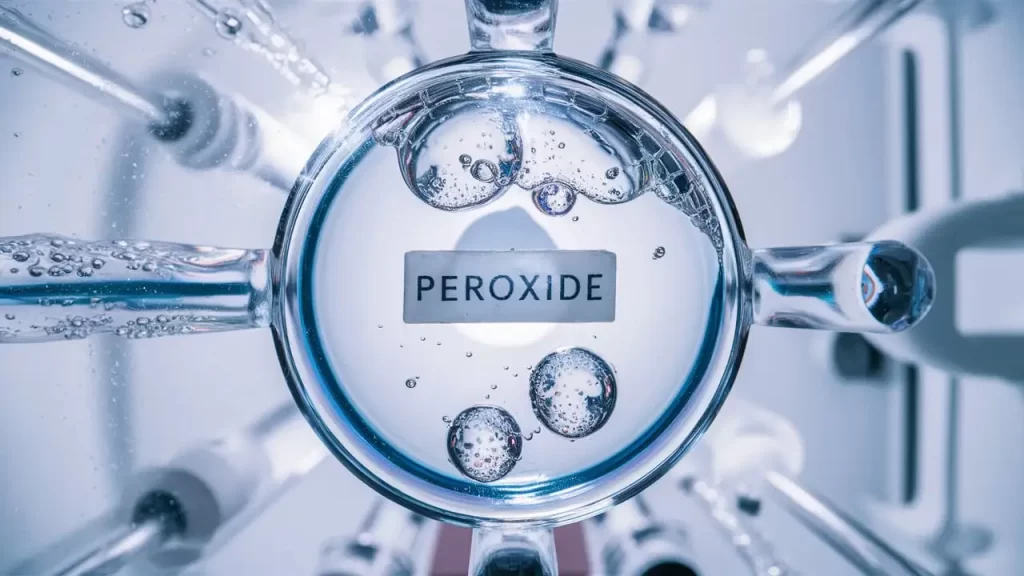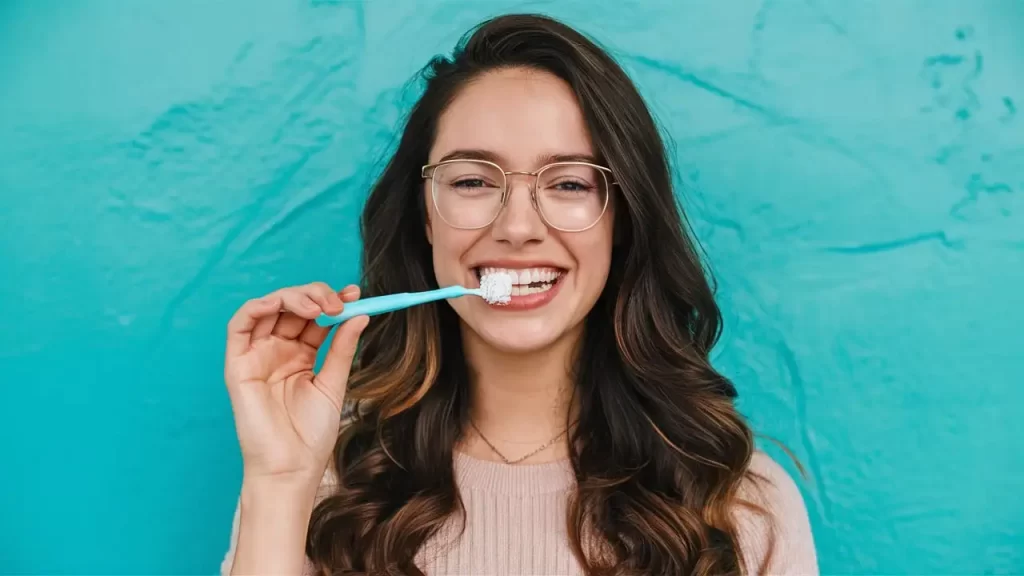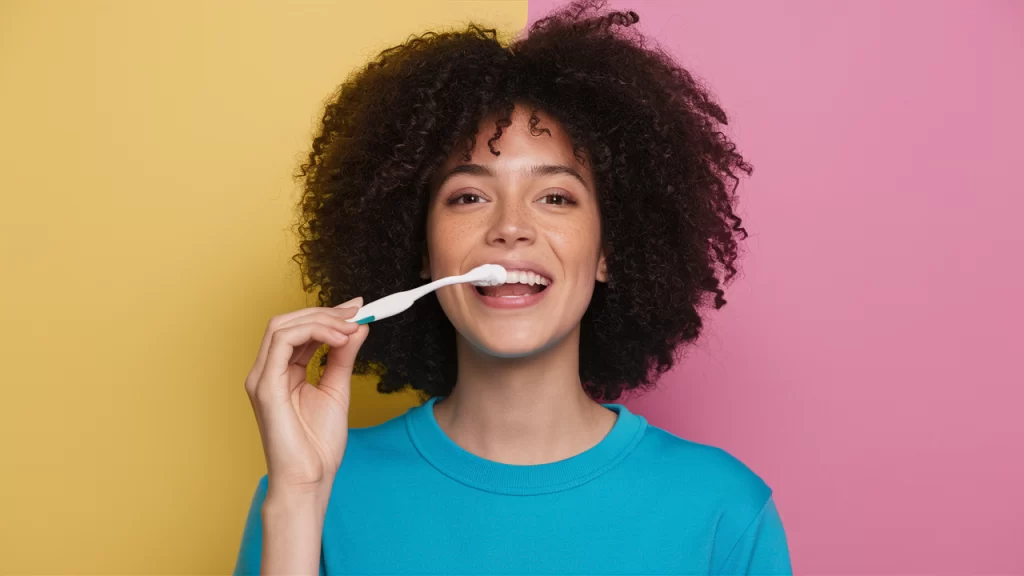Table of Contents
Can You Brush Your Teeth with Peroxide? When it comes to oral hygiene, exploring various methods to enhance your dental routine can be tempting. One such method that often comes up is brushing your teeth with peroxide. But can you brush your teeth with peroxide safely? This comprehensive guide will delve into the details and uncover the truth about this popular yet controversial practice.
Can You Brush Your Teeth with Peroxide? What is Peroxide?

A typical household chemical with a wide range of uses is hydrogen peroxide. It is an antiseptic and disinfection liquid that is clear and colorless. If you’ve ever asked yourself, “Can you brush your teeth with peroxide?” you should know that hydrogen peroxide comes in different concentrations, with a 3% solution being the most widely used in homes. This solution, which is frequently seen in medicine cabinets, is used to clean wounds and is also used in some dental products as a mild bleach. Can you use peroxide to wash your teeth then? It’s critical to comprehend both the benefits and drawbacks of it.
Can You Brush Your Teeth with Peroxide?
Yes, you can use peroxide to clean your teeth, but you should weigh the advantages and disadvantages beforehand. Some dental products have used hydrogen peroxide because of its ability to whiten teeth. However, using it straight from the bottle can pose certain risks.
Why might people use peroxide for brushing?
- Effect of Whitening: It is well known that hydrogen peroxide can lighten and bleach stains. Some people turn to it for a DIY teeth-whitening solution.
- Antiseptic Benefits: It can help kill bacteria in the mouth, which might reduce bad breath and contribute to oral hygiene.
Advantages and Drawbacks of Peroxide Use in Dental Care
Benefits
Whitening: The ability of peroxide to whiten teeth is one of the main causes of inquiries such as “Can you brush your teeth with peroxide?” Because peroxide has been demonstrated in studies to be an efficient surface stain remover and teeth brightener, it is a common ingredient in over-the-counter whitening solutions. So, when wondering about the efficacy, “Can you brush your teeth with peroxide?” remember that it’s often used for its whitening properties.
Antiseptic Properties: Hydrogen peroxide has natural antibacterial properties. When considering if you can brush your teeth with peroxide, it’s worth noting that it can help reduce bacteria in the mouth. This may improve gum health and minimize the risk of infections.
Risks
Enamel Damage: Hydrogen peroxide use on a regular basis can erode and damage tooth enamel. If you’re thinking, “Is it possible to use peroxide to brush your teeth?” It’s critical to realize that enamel, which covers your teeth and acts as a barrier, is irreversibly damaged and cannot be repaired. Tooth decay risk and sensitivity may rise as a result of this.
Gum Irritation: Applying peroxide directly to your gums when asking, “Can you brush your teeth with peroxide?” can cause irritation and discomfort. Undiluted forms may cause gum pain or irritation due to their strong concentration.
Tooth Sensitivity: Prolonged or improper use of hydrogen peroxide may increase tooth sensitivity. When asking, “Can you brush your teeth with peroxide?” remember that this sensitivity can make consuming hot or cold foods and beverages painful.
How to Use Peroxide Safely
To reduce dangers, if you do want to use hydrogen peroxide for your oral hygiene routine, adhere to following recommendations:
- Dilution: Always dilute hydrogen peroxide before using it. Mix one part of 3% hydrogen peroxide with two parts of water to create a safer solution for your teeth.
- Brushing Technique: To protect your gums and enamel, use a toothbrush with soft bristles. Apply the diluted peroxide solution to your hair gently for a brief period of time—at least 30 seconds.
- Rinsing: To get rid of any leftover peroxide, properly rinse your mouth with water after brushing. This lessens irritability and possible harm.
Alternative Methods for Teeth Whitening

If you’re concerned about the risks associated with using hydrogen peroxide, there are several safer alternatives available:
- Whitening Toothpaste: These are specially formulated to whiten teeth gently without causing harm. They typically have polishing chemicals and mild abrasives to assist get rid of surface stains.
- Professional Whitening Treatments: Conducted by a dentist, these treatments use more potent, controlled formulations to achieve effective whitening. They work more quickly and are usually safe.
- Natural Remedies: Baking soda mixed with water can be a milder alternative to peroxide. Another technique that some individuals utilize for dental health advantages is oil pulling with coconut oil.
Expert Opinions on Using Peroxide for Teeth
Dental professionals generally advise caution when using hydrogen peroxide for oral care. While it does have some potential benefits, the risks often outweigh them if misused.
Dr. Jane Doe, a prominent dentist, shares her insights: “Hydrogen peroxide can be effective for teeth whitening, but it’s crucial to use it correctly. Overuse or improper application can lead to enamel erosion and gum irritation. Consider utilizing teeth-whitening goods made expressly for safety and dependability, or get advice from a dentist.
Also Read: Can You Have Sex After a Pap Smear? What You Must Know!
Long-Term Effects of Using Peroxide
Using hydrogen peroxide regularly for brushing teeth can have long-term effects on oral health. Chronic exposure to peroxide may lead to:
- Tooth Enamel Erosion: This can cause irreversible damage and make teeth more prone to decay.
- Gum Disease: Irritation from peroxide can contribute to gum problems if not used correctly.
- Altered Taste Sensation: Some people report changes in taste sensitivity when using hydrogen peroxide frequently.
Alternative Products to Consider
If you’re interested in improving your dental health and achieving a brighter smile without the risks associated with hydrogen peroxide, consider the following products:
- Fluoride Toothpaste: Helps strengthen enamel and prevent cavities.
- Toothpaste with activated charcoal: is well-known for its organic whitening qualities.
- Mouthwash and dental floss: Are necessary for keeping teeth clean and reducing plaque accumulation.
Can you brush your teeth with peroxide? In short, the answer is yes, but proceed with caution. While hydrogen peroxide has some benefits, such as its whitening and antibacterial effects, it also comes with significant risks, including enamel damage and gum irritation. Seek advice from dental professionals and think about other options for the healthiest approach to teeth whitening and oral hygiene.
Understanding the potential benefits and risks lets you make informed decisions about your oral care routine. Maintaining a healthy, radiant smile requires you to prioritize safe procedures and look for expert or tried-and-true alternatives.



